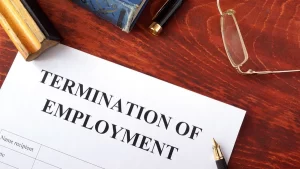
Is a Store Liable for a Customer Injury? What You Need to Know
Shopping is part of everyday life for most people. We visit stores to pick up groceries, browse for clothes, or find a gift for a loved one. When you head out to a retail store, you expect the environment to be safe.
But accidents happen even in the most cautious establishments. If you suffer an injury as a customer, is the store liable?
Understanding premises liability law can help you determine if you have a legitimate case. Here’s everything you need to know about premise liability and how to recover damages when store owners and managers are negligent.
Premises Liability Laws Hold Property Owners Accountable
Premises liability refers to the legal responsibility of landowners to protect visitors from dangerous conditions on their property. When it comes to retail stores, customers are classified as “invitees” who are on the premises for the economic benefit of the business.
California premises liability law requires landowners to regularly inspect their property for hazards and fix any dangerous conditions or provide adequate warning so customers can avoid injury. Failing to meet this standard of care makes the owner negligent if a customer gets hurt.
Proving the Elements of Your Injury Claim
To hold a retail store legally responsible for your injuries, your attorney will need to establish several key facts:
The store owed you a duty of care
- Retail stores have a legal obligation to keep their premises reasonably safe for customers. This duty of care stems from premises liability laws.
- As a customer on the property for shopping purposes, you are considered an “invitee” under California law. The store owed you the highest duty of care.
The store breached their duty of care
- This means the store failed to meet the required standard of care. Specifically, they did not correct the dangerous condition or warn customers adequately.
- For example, they may have been aware of a spill in the aisle but didn’t clean it up promptly or block off the area. Or they failed to put out “wet floor” signs.
The breach of duty directly caused your injury
- There must be a direct link between the store’s negligence and the harm you suffered.
- If you slipped on the wet floor that the store failed to clean up, this establishes direct causation. Or if merchandise fell on you from an unsafe shelf, the improper shelving caused your injury.
You suffered measurable damages and losses
- As a result of the accident, you must have incurred costs, losses, or other legally recognized damages such as:
- Medical expenses
- Lost income
- Loss of future earning capacity
- Pain and suffering
- Emotional distress
- Documenting your damages is key to recovering full compensation.
Using Evidence to Prove Retailer Negligence
Building a strong injury claim requires collecting solid proof of what happened. Useful evidence can include:
- Store incident reports – Details about when, where and how the accident occurred.
- Police reports – Official documentation of the incident.
- Photographs and videos – Visual evidence of hazards or unsafe conditions.
- Medical records – Documents of treatment needed for your injuries.
- Expert testimony – Opinion from specialists like engineers regarding safety defects.
- Prior incidents – Other cases of customers getting injured in the same area of the store. This helps establish a pattern of negligence.
Recovering Damages in a Retail Store Injury Settlement
If you can prove liability, you are entitled to compensation for all losses suffered due to the accident. This can include:
Economic damages
- Medical expenses
- Lost income and future earning capacity
- Cost of ongoing care, therapy, medications, assistive devices
Non-economic damages
- Pain and suffering
- Loss of enjoyment of life
- Emotional distress
Punitive damages
- Extra damages are awarded if gross negligence is proven.
The exact value depends on the unique circumstances of your case. With an attorney on your side, you can pursue maximum compensation.
Consult a Premises Liability Lawyer About Your Rights
Suffering an injury in a store can lead to unexpected medical bills, lost wages, and other costs. The premises owner’s insurance company will try to lowball you on a settlement or deny responsibility altogether.
With legal help, you can make sure the store’s insurance pays for all damages. Don’t go it alone against their team of adjusters and corporate lawyers.
Contact the premise liability lawyers at DP Injury Attorneys today for a free case review. You focus on healing and let their team handle the rest.


